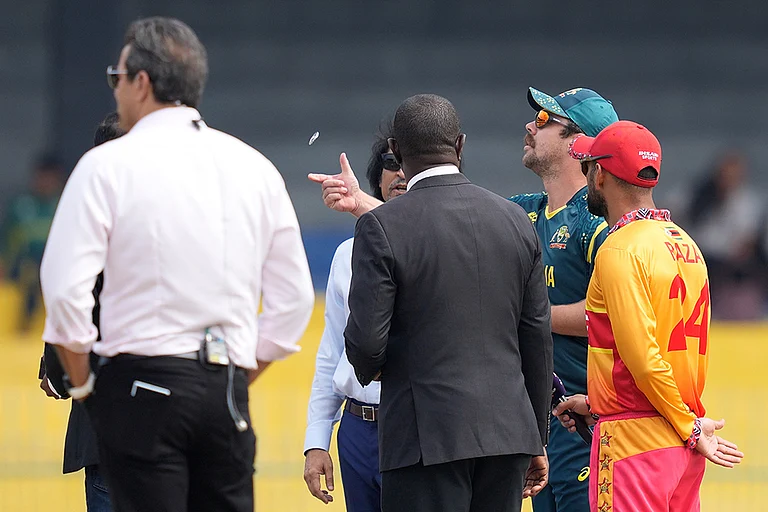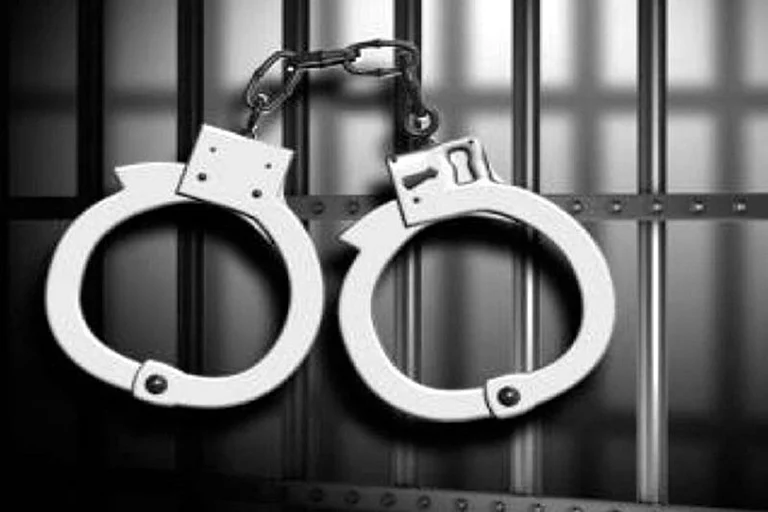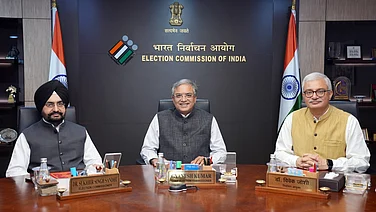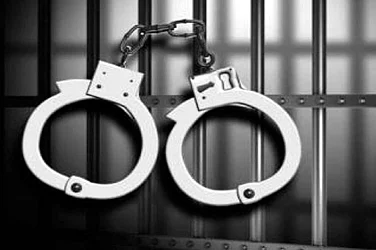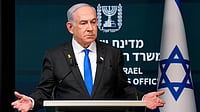A recently enacted hit-and-run law under the Bharatiya Nyay Sanhita (BNS) triggered widespread protests across India, particularly in states like Maharashtra, Rajasthan, Gujarat, and Madhya Pradesh. Truckers in several states launched a three-day protest against the "stringent provision" on Monday, sparking fear over fuel supply getting affected.
After a meeting with the central government, truckers announced on Tuesday evening that they were calling off their protest. Ministry of Home Affairs said that truckers' representatives told that new laws are not implemented yet and if they have concerns, the government will consider them with open heart.
The law over which truck drivers were protesting imposes stringent penalties, including 10 years' imprisonment or a Rs 7 lakh fine, for drivers involved in hit-and-run incidents. Previously, the legal system subjected individuals involved in hit-and-run cases to prosecution under Section 304A of the Indian Penal Code, where they could face a maximum imprisonment of two years upon identification and conviction.
The protests on Monday and Tuesday by truck and commercial vehicle drivers disrupted fuel supply chains and led to significant road blockades. Massive queues was seen on fuel pumps across the country as people rushed to get their vehicles' tank filled over fears of fuel shortage.
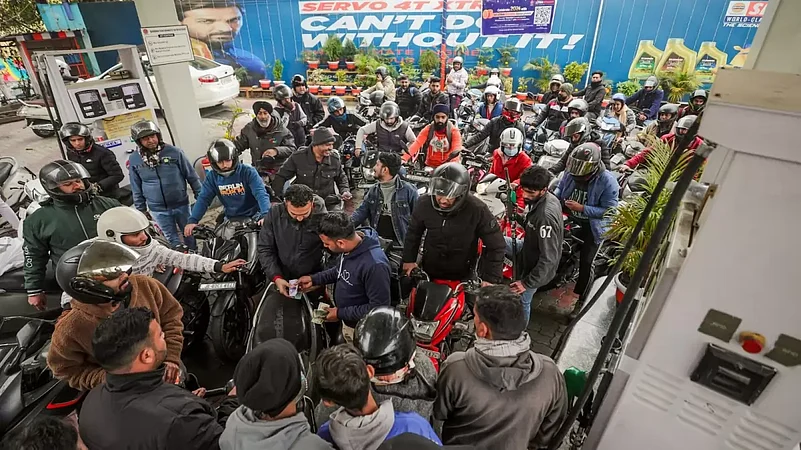
What are the provisions of the new law?
- Hit-and-run cases can result in 10 years imprisonment or a fine of Rs 7 lakh under the BNS.
- Drivers causing serious accidents and fleeing without reporting to authorities face severe penalties.
State-wise protests
Maharashtra:
In Maharashtra, the implementation of the new hit-and-run law sparked protests, particularly among truckers. The Maharashtra Food, Civil Supply and Consumer Protection Department has expressed concern about the agitation affecting the supply of essential petroleum products. The department appealed to the police to ensure a smooth flow of petrol, diesel, and LPG cylinders amid ongoing strikes and road blockades by truckers.
"The stir is impacting the supply chain, and we urge the police to intervene to avoid any further disruptions in the availability of essential commodities," stated a representative from the Maharashtra Food, Civil Supply and Consumer Protection Department.
Jammu And Kashmir:
Vehicles line up at a petrol pump in Pahalgam, Jammu and Kashmir. Motorists complain about non-availability of fuel amid the protest by truckers against a provision in the new penal law regarding hit-and-run road accident cases.
Rajasthan:
Protests against the stringent hit-and-run provisions reached the roads of Rajasthan, causing disruptions in various transportation routes. Roadway buses, as well as trucks and private bus operators, faced challenges due to the agitation. Traffic jams were reported on multiple routes. Operations of roadway buses were initially affected, resuming only after police intervention.
"The protest has led to significant traffic disruptions, particularly on key routes in the state. Our immediate concern is to restore normalcy and address the issues raised by the protesting drivers," mentioned Ashutosh Awana, spokesperson for Rajasthan State Roadways Transport Corporation.
Gujarat:
Widespread protests unfolded in Gujarat against the stringent penalties outlined in the new Bharatiya Nyay Sanhita. Highways passing through Kheda, Valsad, Gir Somnath, Bharuch, and Mehsana districts witnessed blockades as protesters parked vehicles and placed burning tires on arterial routes.
In Gujarat, truckers' protests hindered the transportation of petroleum products due to blockades on key highways.
Bhaiya Khan, a protesting truck driver, highlighted the financial burden, stating, "The fine amount is very harsh. If someone had that much money, he would start a business, why would he be a truck driver." The ripple effect of the protests has raised concerns about fuel shortages, prompting people in various cities to rush to petrol pumps in fear of potential disruptions in the coming days.
Madhya Pradesh:
A transporters' body on Tuesday claimed the strike by truck drivers against a provision in the new penal law on hit-and-run accident cases involving motorists has affected the movement of nearly five lakh vehicles in Madhya Pradesh.
Many passengers were seen stranded at the Inter State Bus Terminus (ISBT) in state capital Bhopal as drivers did not operate the inter-city buses on Tuesday morning.
Some commuters complained of facing difficulties in travelling from Bhopal to Indore.
Huge crowds were also seen at petrol pumps in Bhopal, Indore and other cities on Tuesday morning to refuel their vehicle tanks amid the drivers' agitation. Some people claimed they could not get their vehicles refuelled as petrol pumps ran dry.
However, the administration in various MP districts and major cities like Bhopal, Indore, Gwalior and Jabalpur said there was no shortage of fuel at petrol pumps under their areas of jurisdiction.
Drivers of commercial vehicles, including trucks and tankers, stopped work in parts of Madhya Pradesh from Monday and blocked roads at some places to protest against a provision in the new penal law.
Punjab:
Motorists queued up at fuel stations at many places in Punjab and Haryana on Tuesday over fears that stocks would run dry soon with truckers keeping off the roads to protest stricter punishments in the new law on hit-and-run cases.
In Haryana, private bus operators and some auto-rickshaw unions have also joined the protest against the new provision and some petrol pumps in Ambala reported a shortage of fuel. Chandigarh, the common capital of the twin states, too saw vehicle owners panic-buying fuel.
Secretary general of the Punjab Petroleum Dealers Association Rajesh Kumar said there are nearly 4,000 petrol pumps in the state and fuel supply has been affected due to the agitation since Monday. "As the news spread that truck drivers were holding protests and have gone on strike, people rushed to fuel stations... We are also not getting replenishment of stocks due to the strike... As these drivers are holding protests, they are also not allowing oil tankers to enter depots to get fuel stocks," he alleged. "If this situation continues, we are staring at a dry-out situation soon which prompted us to write a letter to the Punjab chief minister...," Kumar added.
Chhattisgarh:
Chhattisgarh experienced a significant halt in transportation services as drivers of more than 12,000 private buses across the state stopped work in protest against the hit-and-run provisions. The 'steering chhodo andolan' (leave the steering wheel movement) gained momentum, with drivers expressing their discontent.
"Around 1 lakh drivers have launched a protest as a part of 'steering chhodo andolan.' Protests will continue until this provision is revoked," stated Jitendra Shukla, convener of Chhattisgarh Vahan Chalak Sangh.
West Bengal:
In West Bengal, the impact of the protests against the new hit-and-run law was felt, with drivers of commercial buses and truckers stopping work and staging protests at several places. The agitation caused inconveniences for commuters and affected the transportation of goods.
"We are witnessing a widespread protest involving drivers of commercial buses and trucks. It is crucial to address their concerns and find an amicable solution to maintain normalcy in transportation," commented a local official in West Bengal.
The new hit-and-run law has led to widespread protests, impacting fuel supply and causing disruptions in various states. While authorities work to ensure a smooth flow of essential commodities, discussions between government officials and protesting drivers are crucial to address concerns and maintain a balance between road safety and the interests of commercial vehicle operators.
Chandigarh:
In response to the nationwide strike by fuel-tanker drivers, leading to restricted Petrol and Diesel supplies in Chandigarh, authorities temporarily restricted fuel sales at gas stations on Tuesday.
Two-wheelers were allowed to only purchase up to 2 litres (valued at a maximum of Rs 200), and four-wheelers were limited to 5 litres (valued at a maximum of Rs 500) per transaction.









